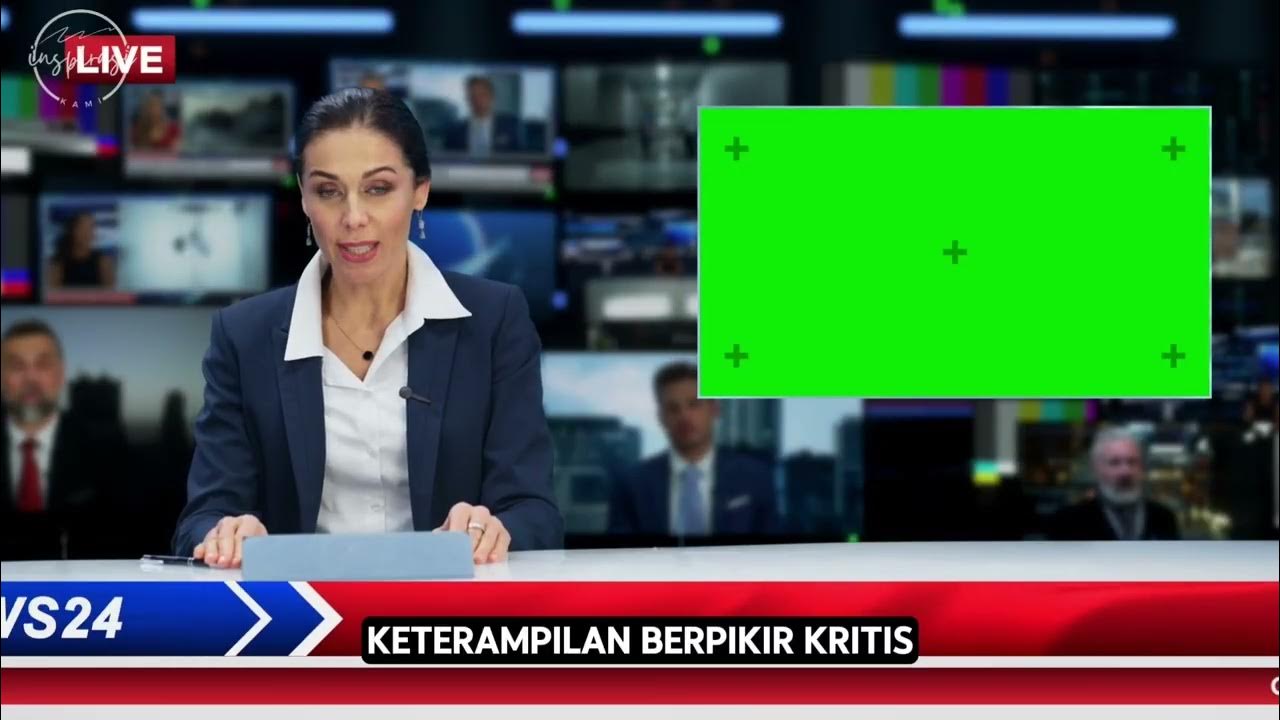Pengantar Perkuliahan Literasi Digital dan Kemanusiaan
Summary
TLDRThe script outlines a digital literacy and humanity course, emphasizing the relationship between humans and technology, including the positive and negative impacts. It covers topics like internetworking, artificial intelligence, e-commerce, cyber ethics, and electronic information and transaction laws. The course is designed for students to gain knowledge and skills to use digital media effectively and ethically, with authentic assessments and a focus on human values. The structure includes learning materials, discussions, exercises, structured assignments, and computer-based tests.
Takeaways
- 😀 The course is a mandatory one provided by the University of Semarang, focusing on the relationship between humans and technology, its positive and negative impacts.
- 📚 It covers topics such as internetworking, artificial intelligence, e-commerce, cyber ethics, and legal regulations on information and electronic transactions.
- 🌐 The course is taught synchronously online to ensure students have a comprehensive understanding of digital literacy and its applications.
- 🎓 Digital literacy is defined as the knowledge and skills to use digital media for communication, evaluation, creation, and utilization of information wisely and ethically.
- 📈 The course includes seven main topics: human-technology relationships, positive and negative impacts of technology, activism, e-commerce, cyber world, cyber public, and electronic information and transaction laws.
- 📝 Students are required to complete a series of activities for each topic, including learning provided materials, participating in discussions, and completing assignments.
- 📊 Assessments are authentic and include structured assignments instead of mid-term and final exams, with a computer-based final test.
- 📘 The course materials, including references and additional resources, are available for students to download freely from the internet.
- 📆 The course is divided into three stages: deepening material understanding, structured assignment completion, and a scheduled computer-based final test.
- 🏆 To proceed to the next topic, students must achieve at least 60% in the activities, ensuring a progressive and comprehensive learning experience.
- 💻 The course emphasizes the importance of digital literacy and its role in fostering communication and interaction in daily life while adhering to ethical standards.
Q & A
What is the main theme of the lecture series?
-The main theme of the lecture series is digital literacy and humanity, focusing on the relationship between humans and technology, the positive and negative impacts of technology, and the ethical and legal aspects of digital transactions.
What type of course is being discussed in the script?
-The course being discussed is a mandatory course offered by the University of Semarang, taught synchronously and online.
What are the key components of digital literacy according to the script?
-Digital literacy involves knowledge and skills to use digital media, communication, or networks to find, evaluate, use, and create information healthily, wisely, smartly, and in compliance with ethical and legal standards.
How many topics will be covered in the lecture series?
-There will be at least seven topics covered in the lecture series.
What are the seven topics that will be discussed in the lecture series?
-The topics include the relationship between humans and technology, the positive and negative impacts of technology, activism, e-commerce, the cyber world, public communication, and the legal regulations of information and electronic transactions.
What is the assessment method for the course?
-The course will use authentic assessment methods and will have structured assignments instead of mid-term and final exams. There will also be a computer-based final test.
What is the requirement to progress to the next topic in the course?
-To progress to the next topic, students must achieve at least 60% on 10 questions at the end of the current topic.
How is the course structured in terms of learning phases?
-The course is divided into three phases: deepening of material, discussion, and exercises; structured assignments; and a scheduled computer-based final test.
What are the sources of reference materials for the course?
-The reference materials for the course can be downloaded freely from various media or the internet.
What is the role of discussion activities in the course?
-Discussion activities are part of the course where students are expected to engage with the topics provided by the instructor and complete guided discussions.
What is the consequence of not completing the tasks for a topic?
-If students do not complete or fully perform the tasks for a topic, they will not be able to proceed to the next topic.
Outlines

Этот раздел доступен только подписчикам платных тарифов. Пожалуйста, перейдите на платный тариф для доступа.
Перейти на платный тарифMindmap

Этот раздел доступен только подписчикам платных тарифов. Пожалуйста, перейдите на платный тариф для доступа.
Перейти на платный тарифKeywords

Этот раздел доступен только подписчикам платных тарифов. Пожалуйста, перейдите на платный тариф для доступа.
Перейти на платный тарифHighlights

Этот раздел доступен только подписчикам платных тарифов. Пожалуйста, перейдите на платный тариф для доступа.
Перейти на платный тарифTranscripts

Этот раздел доступен только подписчикам платных тарифов. Пожалуйста, перейдите на платный тариф для доступа.
Перейти на платный тарифПосмотреть больше похожих видео

pentingnya literasi digital di era modern

Dampak Positif dan Negatif Perkembangan Teknologi Digital | Materi Teknologi Digital Kelas 12

Zakki Nurul Amin. S.Pd, M.Pd - Dampak Positif Teknologi

KELOMPOK 2 : MEDIA PEMBELAJARAN

Restore your brain with nature | David Strayer | TEDxManhattanBeach

Lesson 6 (STS): When Humanity and Technology Cross
5.0 / 5 (0 votes)
